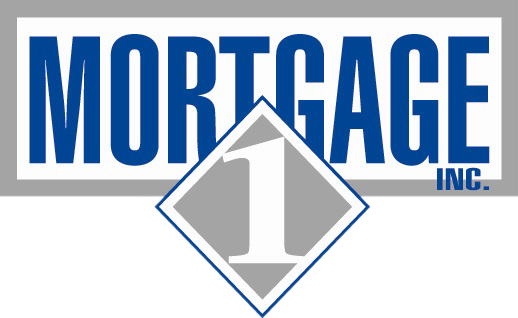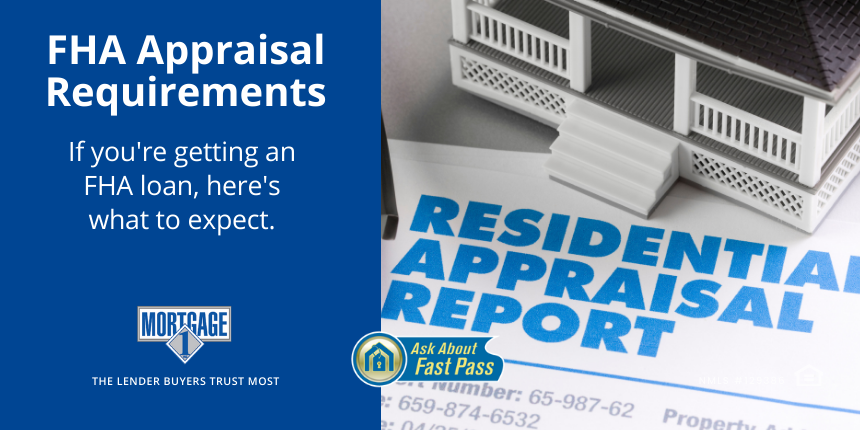
Who Pays Mortgage Closing Costs?
May 11, 2022
5 Questions to Ask Your Mortgage Lender
May 24, 2022If you’re getting an FHA mortgage to purchase your next home, you’ll need to get an appraisal done on the property. Find out what an FHA appraisal is and what to expect in this article.
FHA loans are popular with homebuyers who don’t want to deal with the strict requirements set by conventional mortgages. They’ve helped millions of families afford their own homes, but there’s an extra step in the process: the FHA home appraisal. Let’s explore what goes into this appraisal and how it can affect your mortgage.
| Is an FHA Loan Right for You? Mortgage 1 is a leading FHA lender; our loan experts have the experience to help you choose your best mortgage deal. Give us a call at 1-866-532-0550 or use our Pro SNAP digital app to get started. |
What Is an FHA Mortgage, and Why Does It Require an Appraisal?
An FHA loan is a non-conventional loan that’s insured by the Federal Housing Administration. Because the FHA provides some assurance against the buyer defaulting on the loan, it allows lenders to offer more lenient terms, including lower credit score requirements and much lower down payments.
If you have student debt, it can be easier to get an FHA loan. You may also be able to roll your mortgage closing costs into the loan amount, which means less of a cash hit at closing.
However, FHA mortgages come with their own requirements, such as price restrictions, mortgage insurance requirements, and appraisal specifications. The home appraisal (which is not the same as a home inspection) is there to ensure the property is livable and is worth the asking price.
What to Expect During an FHA Appraisal
An FHA appraisal examines the real estate property – especially the house – for two things: whether it’s worth the loan amount, and whether the house meets basic health and safety requirements.
Usually, the buyer pays for the appraisal. It’s carried out by an FHA-certified appraiser and costs between $300 and $600. During the process, the appraiser will physically inspect the home for:
- Damage to the roof, foundation, or walls.
- Unfinished renovations.
- Safety issues: electrical, working utilities, lead paint (in older homes), sewage, etc.
- Adherence to fire and building codes.
- Insect problems.
- Possible environmental concerns (i.e. underground storage tanks).
- Proper drainage (i.e. grades away from the house to reduce flood risk).
- And more.
The appraiser will also assess whether the property’s asking price reflects a fair market value. To do this, they’ll look at prices for similar properties recently sold in the area.
If the appraisal doesn’t reveal any problems, you can continue with the mortgage process. If problems are listed, you have some options. You can ask the current homeowner to repair the problems (or lower the price if the house is found to be above fair market value). Or you can switch to an FHA 203(k) loan, which is designed for fixer-uppers and includes renovation costs in the mortgage.
Is an FHA Loan Your Best Mortgage Option?
Although FHA mortgages are popular with many homebuyers, including first-timers, they’re not the only flexible option available. Contact your local Mortgage 1 loan agency to find out if FHA loans are right for you.





